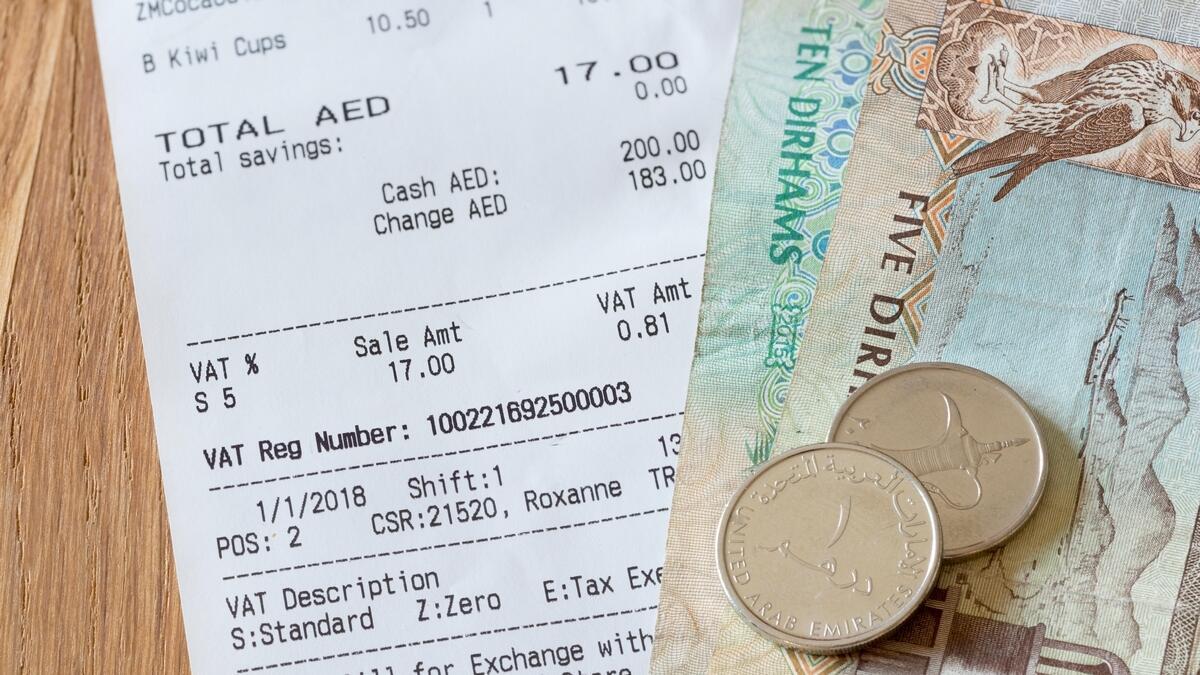Global Inflation: UAE Tracks Prices Around World To Prevent Unjustified Hikes
The country has a price control mechanism especially on basic food commodities.
Abdullah Ahmed Al Saleh, undersecretary of the Ministry of Economy, said the government tracks prices of consumer goods globally and compares them locally to ensure that there is no increase in prices against the trend to ensure consumer protection.
“The global inflation is above the local (UAE) rate. The local inflation saw a 2.2 per cent average annual increase in the last three years, whereas inflation globally, especially of food commodities, increased up to 5-6 per cent,” Al Saleh told Khaleej Times in an interview.
Stay up to date with the latest news. Follow KT on WhatsApp Channels.
Since UAE is a net importer of food products, he said prices are impacted locally by higher shipping costs, global geopolitical crises, and natural calamities.
“So, we monitor all these increases in the international markets and compare the trend in the local market to make sure that there is no increase in the local market against the trend in the international prices,” he added.
According to International Monetary Fund's 'World Economic Outlook' released in October, global headline inflation is projected to average 5.8 per cent in 2024 and 4.3 per cent in 2025 after averaging 6.7 per cent in 2023. This is compared to UAE inflation expected at 2.3 per cent and 2.1 per cent inflation in 2024 and 2025, respectively. The consumer price index in UAE averaged 1.6 per cent in 2023.
Abdullah Ahmed Al Saleh was speaking on the sidelines of a press conference organised to announce a new pricing policy that was previously introduced to monitor the pricing of essential consumer goods.
Under the new policy, UAE banned increasing prices of nine basic consumer goods – cooking oil, eggs, dairy, rice, sugar, poultry, legumes, bread, and wheat - the price of which can only be raised with prior approval from the Ministry. The new changes are scheduled to take effect on January 2, 2025.
The under-secretary of the Ministry of Economy also explained the new Ministerial Decision No. 246 of 2024 on monitoring prices of essential consumer goods, the Ministerial Decision No. 245 of 2024 concerning the unit price of certain consumer goods, and the Ministerial Decision No. 247 of 2024 concerning the Code of Conduct in the consumer goods sector.
Profit margin capAl Saleh added that the new ministerial decisions give the ministry and Higher Committee of Consumer Protection authority to put a cap on the profit margins of the retailers and suppliers of these nine basic commodities to maintain price stability in the local market.
However, other products' prices are adjusted based on the supply-demand factors.
The UAE and its companies have been pushing for self-reliance when it comes to the supply of food and basic commodities as well as expanding their source markets after the Covid-19 pandemic to maintain price stability and uninterrupted supply of basic consumer goods.
“The ministerial decision also deals with the pricing of the unit for transparency and the awareness among the consumer. When consumers buy these essential products, they should know exactly what's the unit price for each commodity. Then the third decision is related to guidelines and best practices. At the end of that, the aim is to ensure that supplier and retailer relationships have no impact on the price of the commodities,” he added.
Under the UAE laws, the violators could face a fine of up to Dh1 million and a closing down of the entity for not adhering to local laws.
Establishing committeesAl Saleh explained that inspection teams should be identified in each emirate as well as procedures of how consumers can submit their complaints to the local government and to the Ministry of Economy and details for suppliers or traders if they want to increase the prices in the local market.
“They should submit their application, attached with all the documentations and evidence that provide that there is an increase on these commodities. The ministry will review this application within 30 days, which can be extended by 15 days, and should submit their decision to the Higher Committee of Consumer Protection,” he added.

Legal Disclaimer:
MENAFN provides the
information “as is” without warranty of any kind. We do not accept
any responsibility or liability for the accuracy, content, images,
videos, licenses, completeness, legality, or reliability of the information
contained in this article. If you have any complaints or copyright
issues related to this article, kindly contact the provider above.
Most popular stories
Market Research

- TOKEN2049 Singapore Breaks Records: 25,000 Attendees At The World's Largest Web3 Event
- Permissionless Data Hub Baselight Taps Walrus To Activate Data Value Onchain
- Newcastle United Announce Multi-Year Partnership With Bydfi
- Ethereum Meme Coin Little Pepe Crosses $25M, Announces 15 ETH Giveaway
- Canada Real Estate Market Size, Share, Trends & Growth Opportunities 2033
- Everstake Expands Institutional Solana Services With Shredstream, Swqos, And Validator-As-A-Service






















Comments
No comment